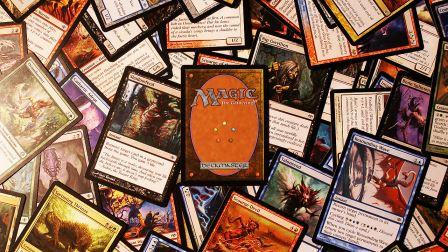Deduction, Innovation, and Frog Monsters: Business Lessons From “Magic: The Gathering”
There’s a seemingly magical way to strengthen employees’ strategic thinking, deduction, reasoning, and calm in the face of overwhelming odds, regardless of industry. The catch: It involves frog monsters.
Magic: The Gathering (the nation’s first collectible card game, coming up on its 23th anniversary) requires those skills, and more, to be successful. It can certainly qualify as a hobby, and more than 20 million people worldwide agree. But a few professional players—yes, there is such a thing as a professional Magic player—make a living off tournament payouts. They’re mostly the exception; many others, like Luis Scott-Vargas, Patrick Chapin, and Paul Reitzl, tour the globe playing on weekends, padding the bank account with day jobs during the week.
They, among others, are models of how lessons learned in playing Magic: The Gathering translate directly to a business setting. All three have become more efficient employees and draw from quick think-on-your-chair scenarios found in a house of cards to climb the ladder at work.
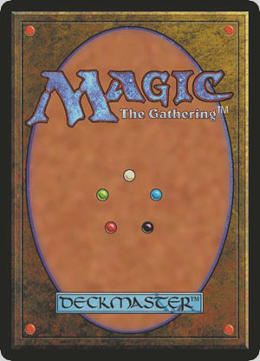
But first, the requisite explanation of the game:
At its core, Magic is about variance. Sounds like luck, but it’s akin to “make your own luck.” Think poker. Add wizards. Two “planeswalkers” face off using decks they have built, with the goal of lowering their opponent’s life total from 20 to 0. Using resources (lands), they cast powerful spells and summon formidable armies of dragons, mercenaries, werewolves, even that frog horror, the Gitrog Monster.
Players attack, block, and make all other manner of micro-decisions. How can they best construct a deck to address what they expect foes to play? In-game, what card did they just draw and how will it further their strategy? Should a player attack, hold back, cast something massive, enjoy the calm before the storm, ferociously flip the table? The presence of variance—aka the construction and execution of a deck to increase the odds of drawing a particular card—strengthens ingenuity.
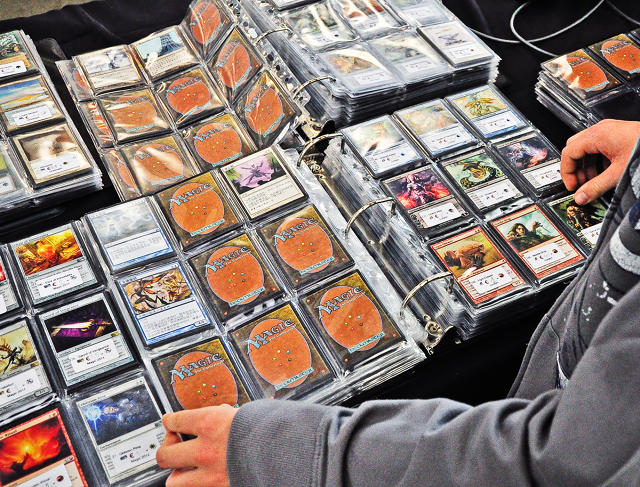
No Easy Ways Out
“Magic games don’t always have an obvious solution,” says Kimberly Kreines, an employee in the research and development department at Wizards of the Coast (the company that makes Magic, and a Hasbro subsidiary). “[Magic] has taught me to take a step back from decisions and not to rush. At the same time, you must be able to make hard choices under pressure.”
Kreines, along with a robust team of designers, releases cards that reward the skills mentioned above. Some are spells that effectively “stack” the deck, but it’s not entirely clear what cards will be needed, and at what time. Some are evasive creatures that, if left unchecked, close out a game quickly. Cold, hard, big-picture stats, meet the heat of the moment.
Rietzl, a 2014 Magic hall of fame inductee, understands the mental strain each decision requires, and notes its importance in his day-to-day work at the executive search firm Isearch. In his role as director of research, Rietzl remains agile and curious. Finding the perfect candidate for a client involves a depth of knowledge into many different worlds, and the ability to process that information with a deadline looming.
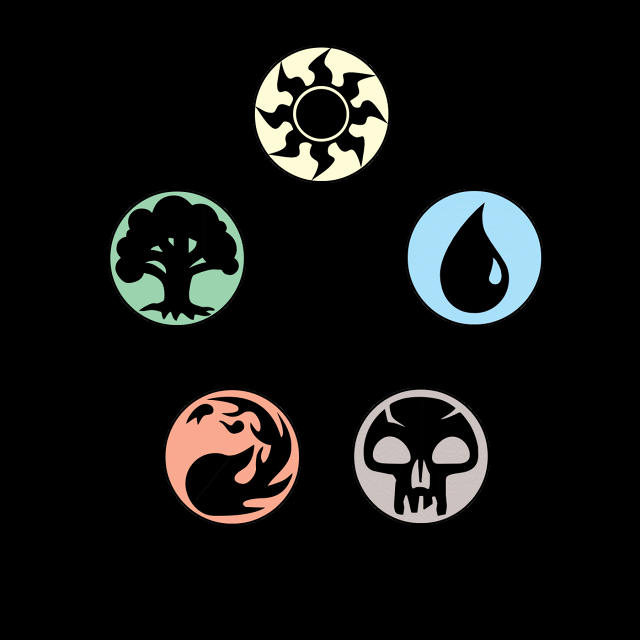
An example, in his words, is being tasked to find someone “attempting to cure some rare form of macular degeneration of the eye.” Rietzl enters the Wiki wormhole to learn everything there is about the dynamic and fascinating world of eye stuff, emerging with a short list of qualified folks ready and rarin’ to eyeball the job.
“Magic players have to want to be able to solve puzzles and be able to apply scientific methodology to complete those puzzles,” he says.
Things don’t always go as planned, though. Or, in the everlasting lyrics of Taylor Swift, “Never ever ever.”
“In Magic, you can win or lose completely independent of how well you play your deck,” Rietzl says. At work, “we could put together an amazing market map and reach out to 80 people hoping for a 30% or 40% response, and we may only get 10%. But it could be because the day we emailed, half those people were sick. It’s not necessarily a reflection of a bad process or a business mistake.”
It All Comes Down to You
Rietzl’s job is about as far from Magic as you can get, yet the strategies of the game are crucial to his success. Other pros, like Scott-Vargas and Chapin, have found themselves in a field with a direct correlation to Magic—online game design. Both work at Denver’s Dire Wolf Digital, and their teamwork benefits from a mutual love of Magic.
“In tournament Magic, you have to learn how to work with others, collaborate, communicate complex ideas,” Chapin says. “Being able to decipher what people are sharing when you have limited information, and come to the best conclusion you can.”
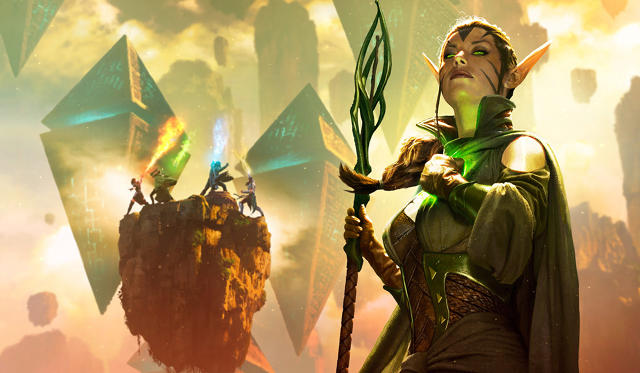
In a game of Magic, there are (typically) two people involved: you and your opponent, sitting across from one another. Players can test against teammates all they want before a tournament, but ultimately it comes down to the match itself—you, alone.
Even then, deduction rears its head at every step of the process, and one-on-one competition enhances communication skills. “You’re still having a conversation with this person through the words you say, the way your voice inflects, the sequencing of the cards you play, and [your opponent’s] actions,” Rietzl says. “If someone does something out of character based on the deck they are playing, you have to figure out, why are they doing that? Do I need to adjust my own play patterns to compensate for this? Is someone running a massive bluff on me?”
Scott-Vargas echoes Rietzl’s last sentiment, emphasizing how important it is at his job. “We [lean] heavily on qualitative analysis,” he says. “You’re not going to know the correct answer, and you’re not even going to find out the answer until much later.”
Dare To Be Stupid
A large part of Magic is predicated on what’s known as the “metagame”—attempting to solve the questions “what types of decks do I expect to face?” and “how can I build a deck to destroy their many frog horrors?” The metagame ebbs and flows as new sets are released (perhaps an extremely powerful card will push a deck archetype over the top).
Scott-Vargas, who provides insightful and engaging commentary for live-streaming tournaments, finds the analogous scenario in the working world when a new product swings the market in a completely new direction. He emphasizes that in Magic, just like in business, preparation, competitive analysis, and agility are key.
“Always have a plan—don’t make decisions in Magic just because each individual one sounds okay at the time,” he says. “At work, you can’t have each department doing their own thing. Each individual decision is not going to string together if they’re not made in concert.”
The value of Magic’s makeshift training seminars are not lost on employers so far. Chapin says many companies send people to Magic pro tours to recruit players for Wall Street trading, a variety of stats-based sports betting, and of course game design. Magic enhances the skills to succeed in those arenas, but it also offers a chance to take risks—to fail, to learn, and to constantly improve.
“It’s okay to have ideas that are bad,” says Chapin—also known as “The Innovator” within Magic circles for his nontraditional approach to deck building. “Stupid ideas are often the most valuable because everyone has the obvious ideas. Brilliant ideas are stupid ideas that worked.”
So snag some Gitrog Monsters and shuffle up a few starter decks at training seminars. Employees will walk out with novel ideas and the skills to execute them efficiently, intelligently, pragmatically, and collaboratively. And who knows—you might stumble upon something so stupid, it just might work.
Fast Company , Read Full Story
(46)

